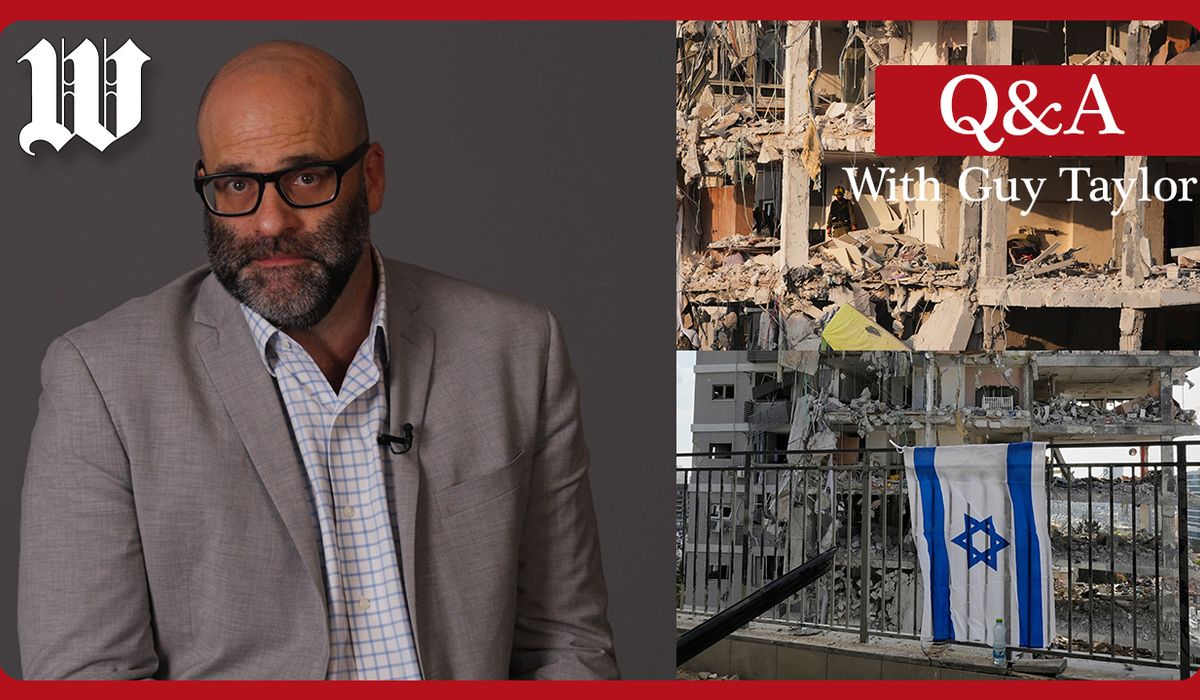


The advanced-tech Israeli missile shield appears to be holding its own, although dozens of the Iranian missiles fired in daily barrages since last week have managed to pierce the multilayered air defense system, hitting targets and claiming lives in Tel Aviv and Haifa — and wounding more than 200 Thursday at the main hospital in the southern Israeli town of Beersheba.
Israel says Iran fired more than 400 missiles over the first six days of the war and more than 40 caused damage or casualties. The munitions used to shoot down incoming missiles, including Arrow 3 interceptors, are under strain. Israeli defense officials warned of “unsustainable usage rates” over the past 48 hours. Emergency shipments from the U.S. are reportedly en route.
Terminal High-Altitude Area Defense batteries have been activated in northern Israel and integrated into the air defense system. This enables real-time coordination across Israel and with U.S. missile defense platforms. U.S. Navy Aegis-equipped destroyers have also shot down incoming missiles from Iran’s aerial assault, which has its own problems. The Institute for the Study of War estimates more than 120 missile launchers and 70 Iranian battery sites have been destroyed. As many as 300 launchers remain.
Threat Status author Guy Taylor answers key questions on the precarious state of the conflict between Israel and Iran. This was recorded on Wednesday, June 18.
What is the current status of the conflict between Israel and Iran?
The current status of the conflict is precarious. This is essentially an air war between Israel and Iran that has intensified for roughly a week since Israel initially unleashed a wave of airstrikes targeting Iranian nuclear facilities and a range of military and other targets, including a key headquarters of the Iranian regime’s state-controlled television in Tehran. While Iran has retaliated by firing scores of ballistic missiles into Israel, several of which have overwhelmed Israeli defenses and struck buildings in Tel Aviv. All of this has unfolded while China and Russia, both of whom are basically allies of Iran, jockey for influence over the direction of the conflict, and as the world stands on edge, amid anticipation that President Trump will order the U.S. military to bomb Iran in support of Israel. As of June 17, the Israeli military claimed to have achieved air superiority over Iran, but has asked for Washington’s help in striking Iran’s most robust underground nuclear facility, which is called Fordo.
PHOTOS: Photos of the escalating Israel-Iran conflict as attacks continue
What is Israel’s main goal and are they achieving it?
Israeli Prime Minister Benjamin Netanyahu said on June 15 that Israel’s actions are necessary for self preservation because of the Iranian regime’s history of threatening to wipe Israel off the map and of backing proxy militias against Israel, such as Hezbollah and Hamas, the latter of which carried out the October 7, 2023 terrorist attack against Israel. But Israel’s main goal right now appears to be to destroy Iran’s nuclear program. Iranian officials say the program is peaceful, but the UN’s nuclear watchdog has repeatedly accused Iran of eluding international inspections and engaging a level of uranium enrichment indicative of a nuclear bomb-making program. Israeli officials have said Iran’s ballistic missile strikes on Israel have killed at least 13 people and wounded more than 360. Israeli figures have shown that about 22 of more than 270 missiles fired by Iran had made it through Israel’s air defenses.
What is the U.S. role and how could that change?
President Trump has towed a cautious line in support of Israel, but it has been reported that he privately vetoed an initial Israeli plot to assassinate Iran’s supreme leader as part of this war. Israeli officials are lobbying for the U.S. military to drop a so-called “bunker buster bomb” on Iran’s mountain-encased Fordo nuclear site. Israel does not have planes capable of carrying such 30,000-pound precision-guided bombs, that analysts say would be required to actually decimate Fordo, which features operation centers buried some 260 feet underground.
How are other countries reacting?
Iraq, Turkey, Syria, Lebanon, and beyond, it could cause major energy disruptions. It could lead to unstable refugee flows and humanitarian crises. China, which has really emerged as a strategic partner of Iran in recent years and leads the world in Iranian oil purchases, has held separate phone calls with Israeli and Iranian officials. It has been sharply critical of Israel’s strikes on Iran and said it would support Iran. Venezuela, another strategic partner of Iran, and Russia is also reported to have condemned Israel’s attacks. There’s consensus in some U.S. national security circles that China, Russia, and even North Korea would back Tehran against the U.S., Israel, and perhaps other Western allies should this conflict spiral into a world war.
What happened to the nuclear negotiations that had started?
The nuclear talks have essentially collapsed. President Trump stated on June 16th that a 60-day window he had previously given Iranian officials to reach some kind of deal to limit or end their nuclear program has now passed. It seems very unlikely now that negotiations will resume. The more immediate question now is whether the war can be brought to an end without spiraling and drawing in other powers. There are also big questions about whether Iran’s government will survive. Israeli Prime Minister Netanyahu has said Israel is not attempting to topple the Iranian government, but he would not be surprised if that happened as a result of the Israeli airstrikes. This is why the conflict is so precarious, because it is not clear what kind of internal strife may be unleashed inside Iran if the hard-line Islamic regime that has held power since 1979 there were to collapse.
